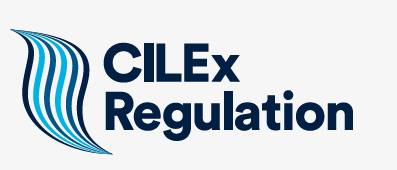CILEx Regulation
Prior conduct and maintaining your professional standards
Declaring your Prior Conduct is mandatory; find out why it’s necessary, what you need to declare and when you need to declare.
 As a member of CILEx, you are part of an organisation of individuals known for their professionalism. You have a reputation as a legal practitioner that can be trusted by members of the public and businesses and employers are confident to recruit you.
As a member of CILEx, you are part of an organisation of individuals known for their professionalism. You have a reputation as a legal practitioner that can be trusted by members of the public and businesses and employers are confident to recruit you.
A significant factor in your professional status is that you are regulated. Being regulated sets you apart from other professionals who operate without the assurance of regulation. It also brings with it rights and responsibilities, and it’s those responsibilities that lead to you being a highly trusted professional.
Your prior conduct declaration
We require all members of CILEx to provide us with full details of any conduct that may affect their suitability to become, or remain, regulated or authorised by us. You will recognise this as the prior conduct declaration and the requirement is set out in Rule 11 of the Enforcement Rules.
Who does it apply to?
The requirement to make a conduct declaration applies to all members of CILEx, whether you are practising or non-practising. All CILEx Practitioners, and all individuals with an approved role in one of our authorised entities, are also included.
When should you make a conduct declaration?
- It is important to know when you need to declare conduct. As well as it being part of the application process for CILEx membership, all CILEx Members, CILEx Practitioners and Approved Managers must make a declaration: as soon as the conduct occurs; and
- as part of the CILEx membership and/or practising certificate renewal process and in any annual return; and
- on every CILEx and CILEx Regulation application form (including, but not only in, applications for qualifying employment and work based learning).
Completing a declaration is very quick and easy and can be done online. You can access myCILEx at any time and select the ‘My conduct declaration’ tab. If you have any problems, please follow our step-by-step instructions or contact us at: info@cilexregulation.org.uk
What needs to be declared and what doesn’t need to be declared?
The requirements vary depending on the type of regulated professional you are. In general:
- Criminal convictions, cautions, reprimands and final warnings that are not protected, including those that are spent, must be declared if you are or applying to become: a Chartered Legal Executive, CILEx Practitioner or for an approved role in an Authorised Entity.
- You are not required to declare spent convictions if you are not applying for ones of the roles listed above.
- No one is required to declare protected convictions or cautions.
- Formal arrangements with creditors, where they usually agree to accept less than they are owed, must be declared. This includes Debt Relief Orders and Individual voluntary arrangements (IVAs); however, you do not need to declare informal arrangements to repay your creditors in full.
There is further prior conduct guidance on our website to help you understand what must be declared. Please access the website for more prior conduct guidance.

